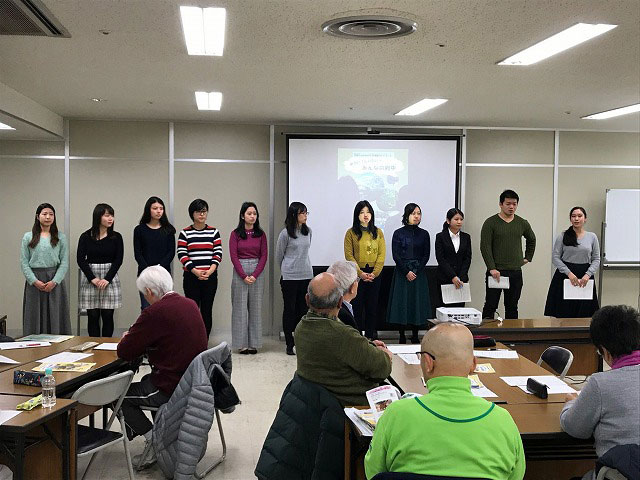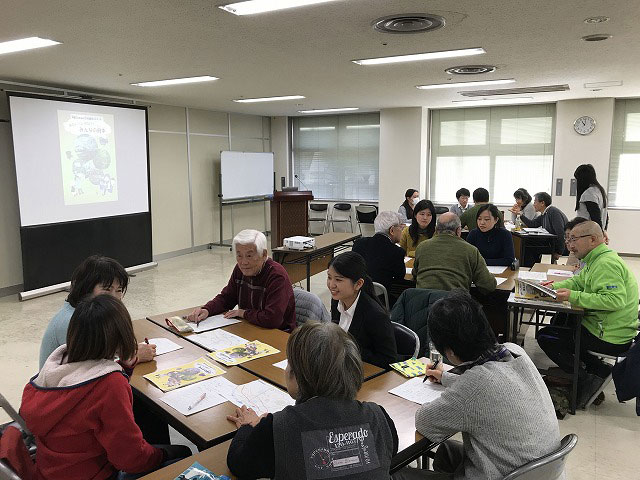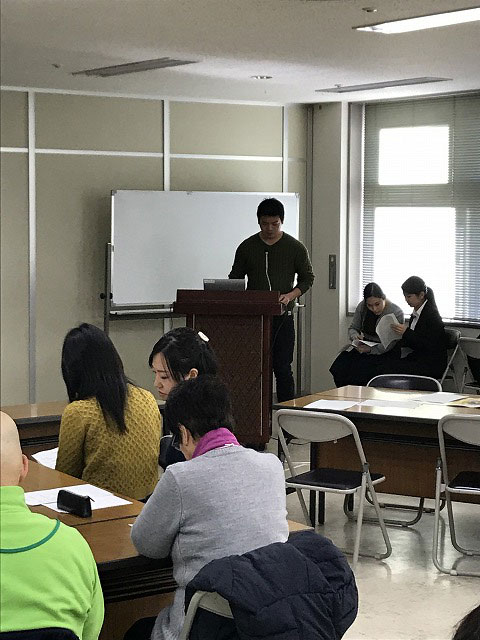“Handbook for Foreigners Living in Japan” Debriefing Session held in Fuchu
February 18, 2019
On Friday the 18th of January 2019, a debriefing session was held at the Fuchu International Salon to commemorate the completion of another “Handbook for Foreigners Living in Japan,” an ongoing project in collaboration with Fuchu City. These handbooks are created by TUFS students as part of the internship program of the School of Language and Culture Studies (Community Interpretation Research Seminar).
Up until now, the “Handbook for Foreigners Living in Japan” has covered “disaster prevention,” “childrearing,” “garbage disposal,” and “high school entrance”. This year, students tackled the topic of public facilities, and created the “Handbook to Public Facilities for Foreign Residents of Fuchu”.
On the day, presentations were made, and followed by a lively exchange of opinions by the students and volunteers of the salon. This year’s ‘Handbook for Foreigners Living in Japan’ will be published as a booklet in the near future, and will also be available online.
Comments from the students who participated in this session can be read below.
Comment - Soma Hirakawa (School of Language and Culture Studies, Spanish Language Studies, fourth year)
With the concept of creating a “handbook to help foreign residents of Fuchu increase their spare time and improve the quality of their everyday life”, we combined our ideas and opinions as a team, and were able to make such a handbook.
I think that we were able to make a good handbook by considering and applying the perspectives of Fuchu City Hall and the Fuchu International Salon, and the opinions of the citizens of Fuchu. I hope many people use this handbook to enjoy their lives in Fuchu.
Comment - Yurika Yamazaki (School of Language and Culture Studies, Laotian Language Studies, fourth year)
In this quarter’s internship, we made a handbook to introduce the public facilities of Fuchu to its foreign residents. As opposed to just making a handbook on topics that we thought were important, we considered who we were making it for and the needs they have, thought of a concept to base the handbook around, and used evidence and logic to guide our decisions – a process that I think became a valuable experience for my own future career path. This handbook is the result of spending many hours visiting and speaking with people from various public facilities, so I hope many people use it, and that their spare time increases because of it.



